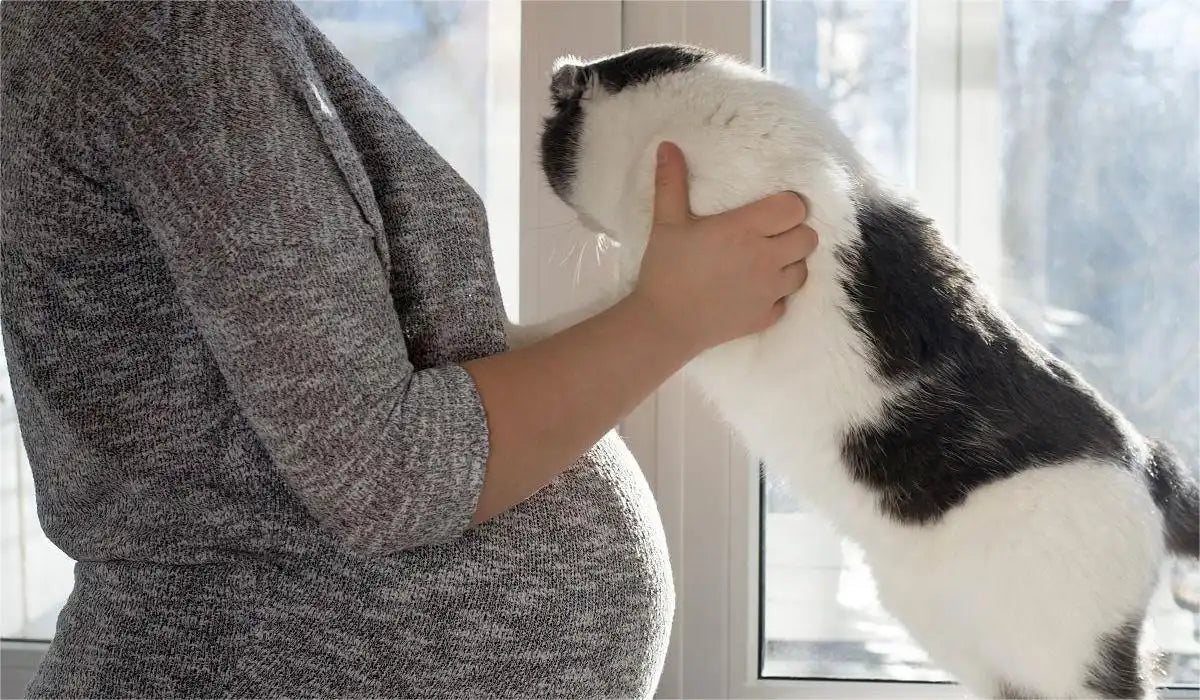
Cleaning a litter box while pregnant is a task that comes with certain health considerations, primarily because of the risk of toxoplasmosis, a parasitic infection. Toxoplasmosis can pose serious health risks to the developing fetus, including birth defects and miscarriage. However, with the right precautions, managing a litter box during pregnancy can be done safely. This blog post will cover the risks associated with toxoplasmosis, how it's contracted from cat feces, and the best practices for safely handling a litter box while pregnant.
Can I clean my cat litter box while pregnant?
Pregnant women are not recommended to clean cat litter boxes if they can avoid it. Toxoplasma gondii, a parasite found in some cat feces, can cause toxoplasmosis, which posesserious risks to a developing fetus.
Risks of Cleaning Cat Litter While Pregnant
If a pregnant woman contracts toxoplasmosis for the first time during pregnancy, she may unknowingly pass it to her unborn child. This can lead to complications such as miscarriage, premature birth, blindness, or brain damage. The risks are higher if the infection occurs during the first trimester.
However, not all cats carry Toxoplasma gondii. The primary risk comes from outdoor cats or cats that consume raw meat. Indoor cats that eat commercial cat food and have no exposure to contaminated soil or prey have a much lower risk of carrying the parasite.
If you have previously been infected with toxoplasmosis before pregnancy, your body may have developed immunity, reducing the risk to your baby. According to the CDC, women who have had toxoplasmosis in the past are typically immune, but it is always best to consult your doctor.
What is Toxoplasmosis?
Toxoplasmosis is caused by the parasite Toxoplasma gondii. The infection often goes unnoticed in healthy individuals, but during pregnancy, it can have severe consequences.
How Do You Get Toxoplasmosis from a Cat?
- Cats get infected by eating contaminated prey or raw meat.
- An infected cat can shed Toxoplasma gondii parasites in its feces for one to three weeks.
- The parasite becomes infectious 1–5 days after being shed. Cleaning an infected litter box after this period increases the risk of exposure.
- The parasite can spread through contaminated soil, unwashed fruits and vegetables, or undercooked meat.
Who Should Clean the Litter Box If You're Pregnant?
If possible, delegate litter box duties to another household member. If you must do it yourself, take proper precautions to minimize risk.
Safeguarding Against Toxoplasmosis During Pregnancy
You can reduce your chance of contracting toxoplasmosis during pregnancy by taking the following precautions:
- Avoid Cleaning the Litter Box If Possible. The simplest precaution is to delegate this chore to another household member during your pregnancy. If you must change the litter yourself, do so daily and take precautions (please keep reading to learn more) when cleaning your cat litter box.
- Feed your pet a complete and balanced cat food rather than raw or undercooked meat.
- Wear gloves when gardening or handling soil, as soil may contain contaminated cat feces. Wash your hands with soap when finished.
- Wash your hands, knives, cutting boards, and countertops after handling raw meat, and avoid touching your eyes, nose, and mouth before washing your hands.
- Handle Food Safely. Since toxoplasmosis can also be transmitted through contaminated food, ensure to cook all meat to safe temperatures, wash fruits and vegetables thoroughly, and avoid untreated water.
Safe Ways to Handle Cat Litter When Pregnant
If you are pregnant and must clean the litter box, follow these precautions to protect yourself and your baby:
- Wear Gloves and a Mask: Always wear disposable gloves and a mask to prevent direct contact and inhalation of dust particles.
- Can I Clean the Litter Box While Pregnant If I Wear a Mask? While wearing a mask reduces the risk of inhaling airborne particles, it does not eliminate the risk of direct contact. Always wear gloves and wash your hands thoroughly afterward.
- Wash Hands Thoroughly: Wash your hands with soap and warm water immediately after cleaning the litter box.
- Clean the Litter Box Daily: Since Toxoplasma parasites take 1-5 days to become infectious, cleaning the box daily significantly reduces the risk.
- Use an Automatic Litter Box: Self-cleaning cat litter boxes quickly remove cat feces, reducing human contact. However, wear gloves and wash your hands when emptying the waste bin.
- Keep Your Cat Indoors: Indoor cats are less likely to be exposed to toxoplasmosis than those that roam outside.
- Do I Need Gloves to Clean the Litter Box While Pregnant? Yes, always wear gloves and wash hands afterward to minimize exposure.
- Should I Wear a Mask When Cleaning Cat Litter During Pregnancy? While the risk of airborne transmission is low, a mask can add extra protection against inhaling dust particles.
Additional Tips for Preventing Toxoplasmosis During Pregnancy
Besides avoiding contact with cat feces, consider these lifestyle precautions:
- Wash hands after gardening: Soil can contain Toxoplasma gondii, so always wash your hands after outdoor activities.
- Avoid raw or undercooked meat: Always cook meat to afe temperatures.
- Wash fruits and vegetables thoroughly: Toxoplasmosis can spread through contaminated produce.
- Avoid adopting new cats or handling stray cats: This minimizes the risk of exposure to infected animals.
Do I Have to Give Up My Cat If I'm Pregnant?
No, you do not need to give up your cat. With proper hygiene and precautions, you can safely keep your feline companion while pregnant.
What If I Already Cleaned the Litter Box Before Knowing I Was Pregnant?
If you unknowingly cleaned the litter box before learning about the risks, don’t panic. The chances of contracting toxoplasmosis from a single exposure are low, especially if you washed your hands afterward. However, if you’re concerned, consult your doctor for a toxoplasmosis blood test to check for immunity or infection.
Conclusion
Handling a litter box during pregnancy requires extra care, but by following proper precautions, you can reduce the risk of toxoplasmosis and protect your baby. Delegate cleaning duties if possible, or wear gloves, clean the box daily, and practice good hygiene. If you have concerns, always check with your healthcare provider for the best advice.
By taking these steps, pregnant women can safely live with their cats without unnecessary worry.


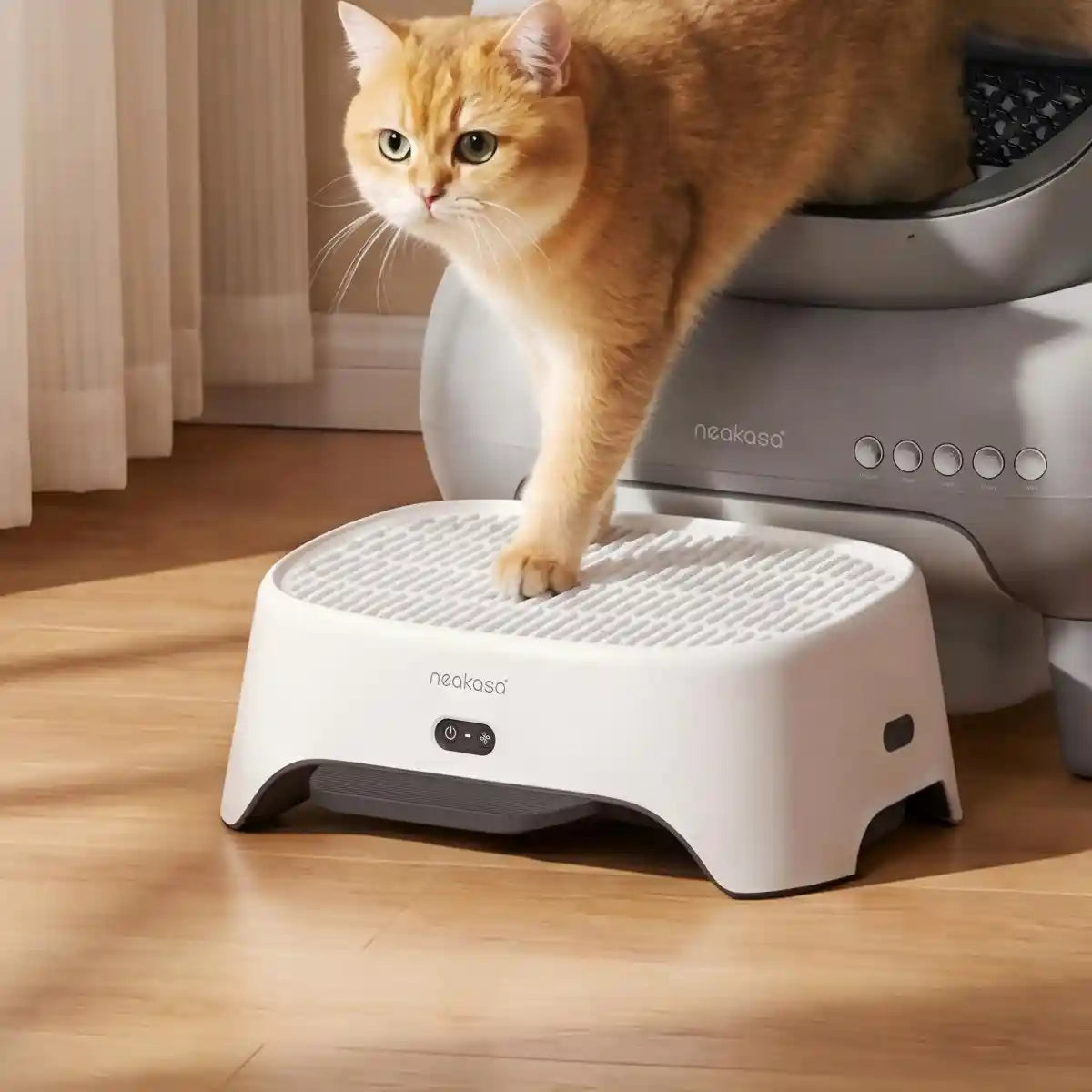
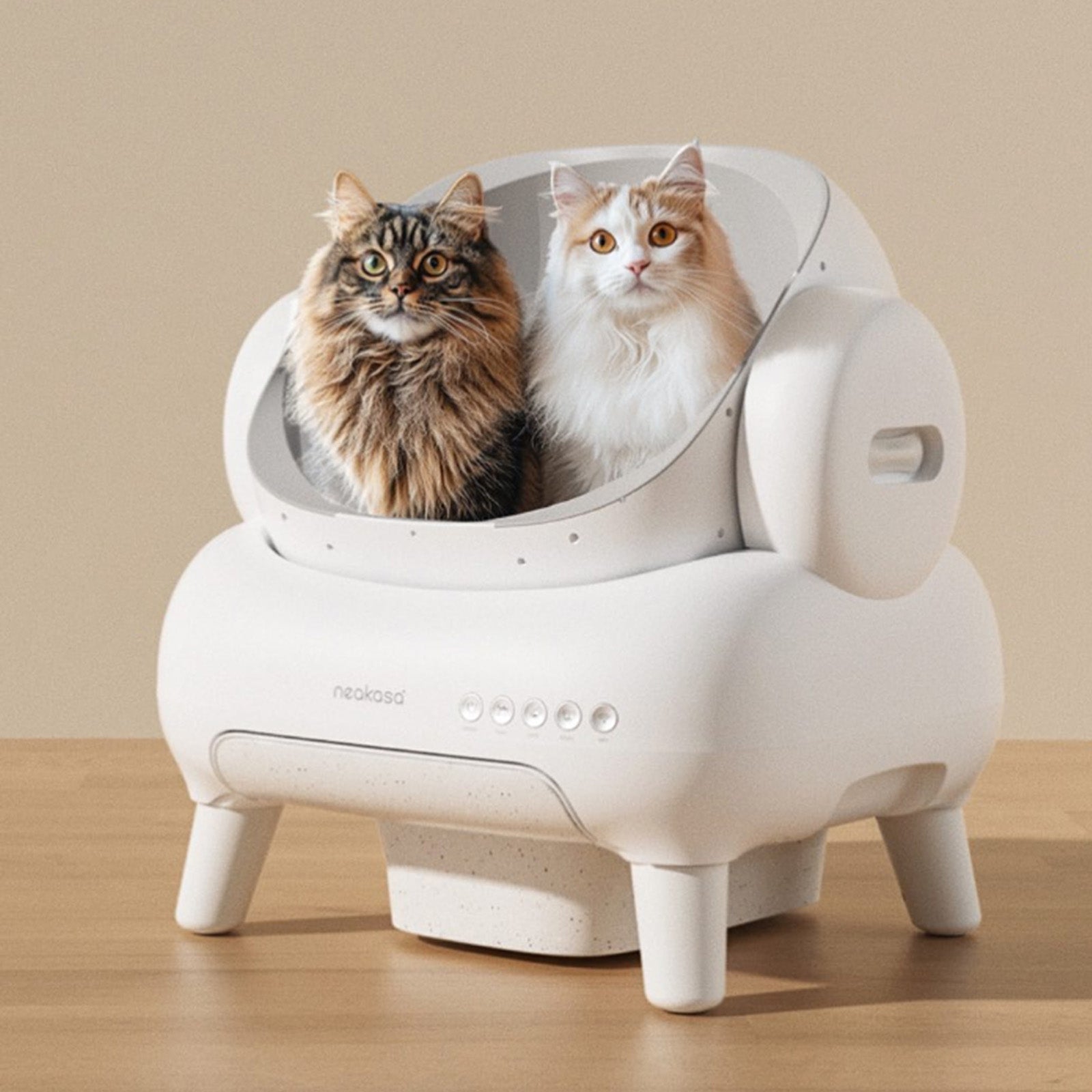
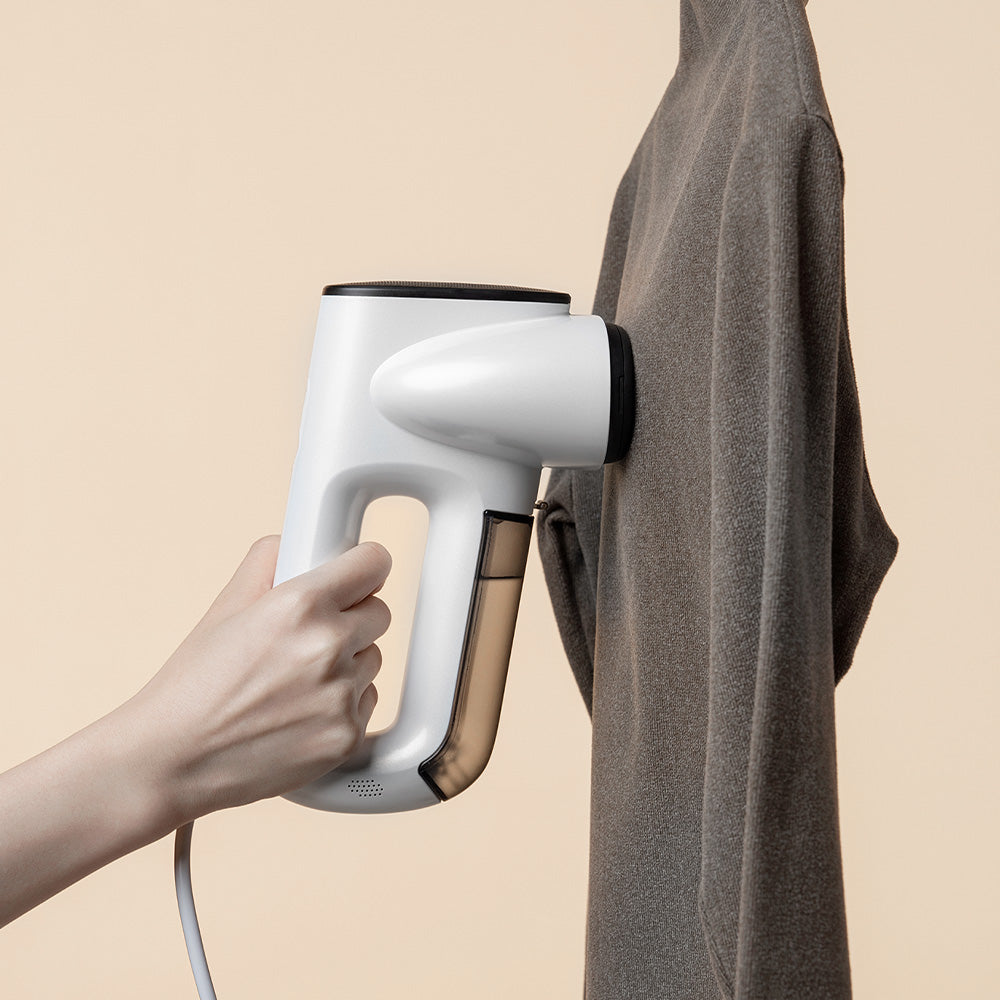
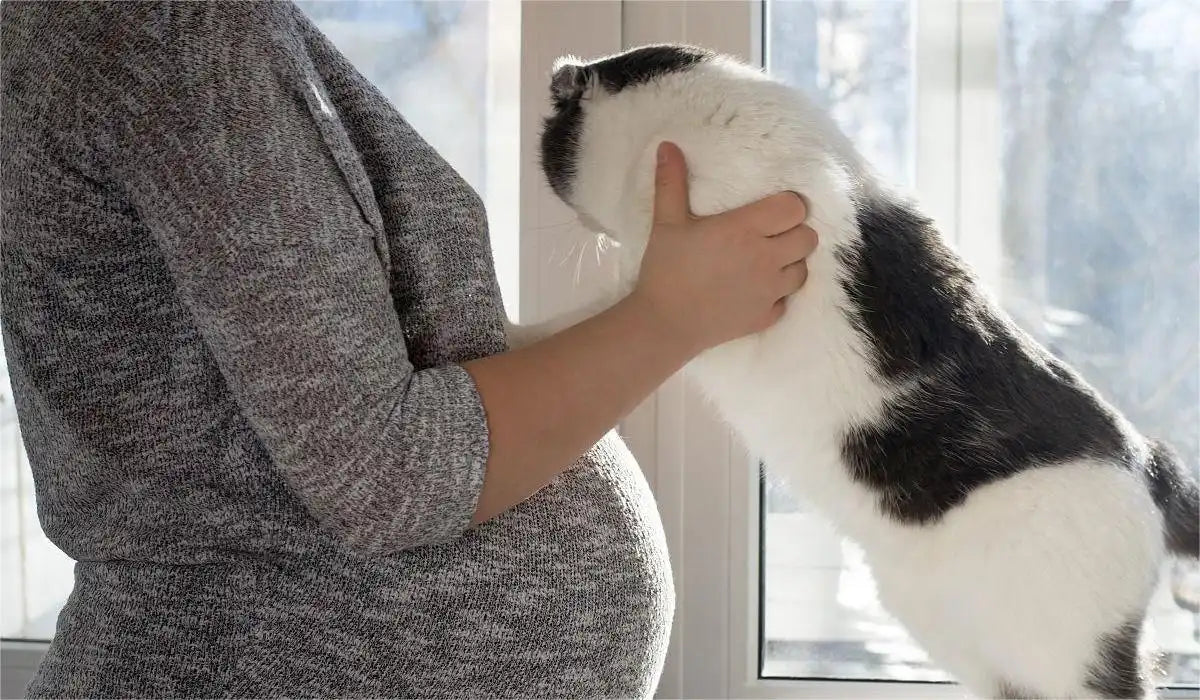


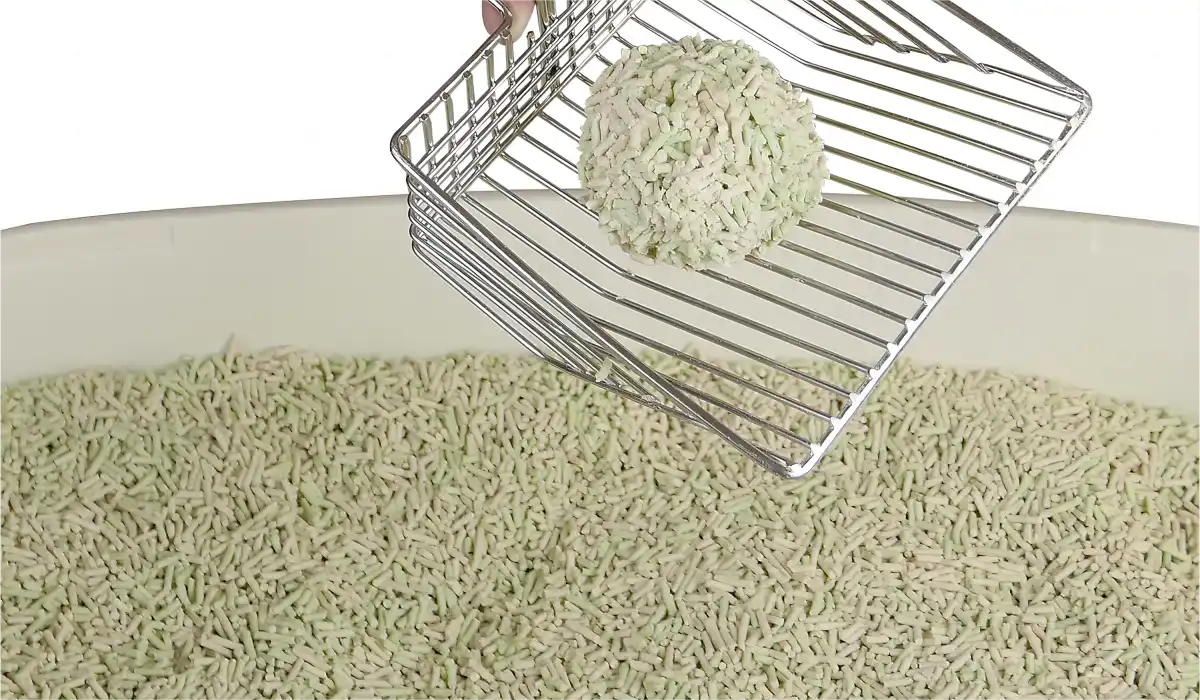

Leave a comment
This site is protected by hCaptcha and the hCaptcha Privacy Policy and Terms of Service apply.